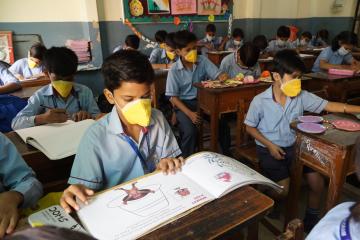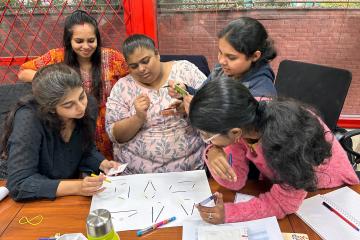
Scaling a playful math curriculum to help children learn: Introducing the Every Child Counts Implementation Toolkit
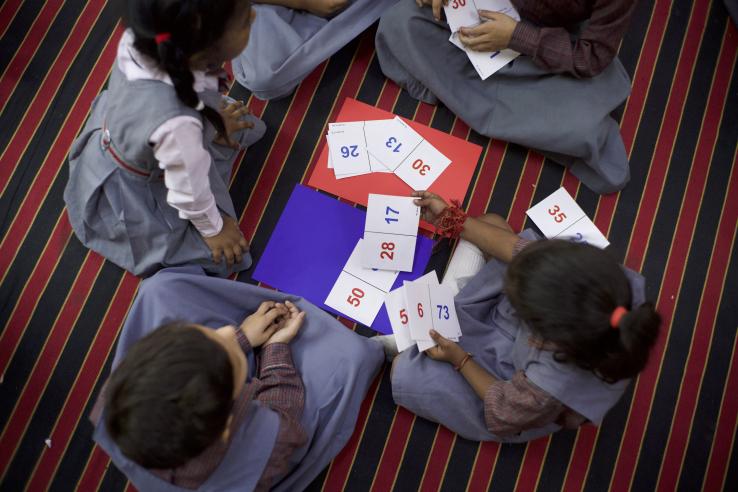
With a quick look, can you tell which of the following boxes has more dots?
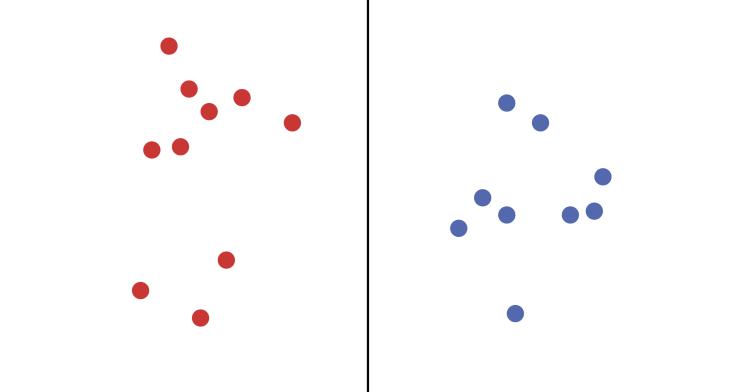
If you answered yes (and you answered “red”), that is correct—what you’ve just demonstrated is an example of intuitive or non-symbolic math. Research with infants provides evidence that they have an intuitive grasp of numbers, geometry, and language, which grows over their preschool years.
An urgent crisis and a unique solution—math games
The world is facing an urgent foundational literacy and numeracy (FLN) crisis, worsened by the Covid pandemic. As organizations and governments around the world mobilize to address this crisis, J-PAL South Asia has been working since 2020 to scale Every Child Counts, a unique curriculum that builds on fifty years of cognitive science research.
It taps into young children’s intuitive, non-symbolic understanding of mathematics, skills they naturally possess, and helps bridge the gap to formal math taught in classrooms. These skills not only lay the groundwork for academic success but also develop cognitive abilities like logical reasoning, problem-solving, and analytical thinking that children carry far beyond the classroom.
This work has culminated in the launch of the Every Child Counts Implementation Toolkit: a practical guide grounded in J-PAL South Asia’s experience evaluating and scaling the curriculum across India. The toolkit was officially unveiled at the India Scale-Up Summit 2025, hosted by ASPIRE, where policymakers, practitioners, and researchers convened to share insights on scaling evidence-based solutions.
The guide offers insights for governments, NGOs, funding agencies, and other institutions into the curriculum’s theory and evidence, details on classroom implementation, key ingredients for successful scaling, and more. Download the guide.
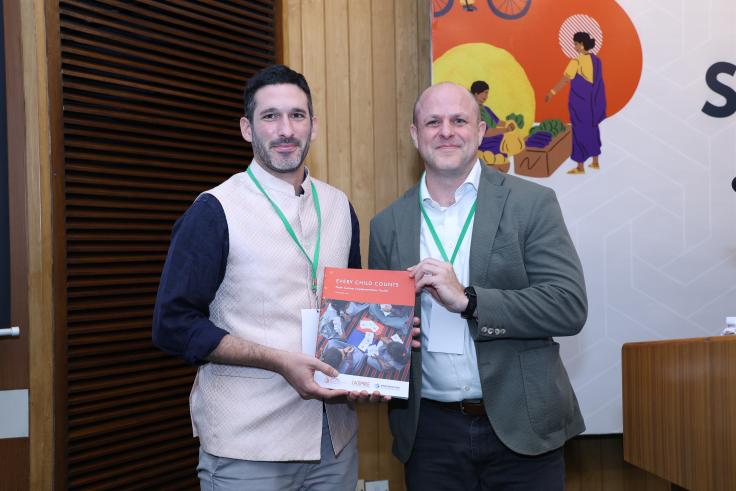
At its core, the Every Child Counts curriculum consists of four math games played three times a week for less than an hour, and designed to be implemented in regular preschool and early primary classrooms. From 2019 to 2025, the curriculum reached over 33,000 children across 1,300 schools. By 2027, it is on track to reach nearly 40,000 schools and 500,000 students annually across four states in India, through both government and NGO-led implementation.
As Every Child Counts continues to scale, it’s becoming even more cost-effective, making it a powerful solution for governments, NGOs, and donors seeking scalable solutions to the FLN crisis.
We invite you to explore the toolkit, share it with your networks, and consider how Every Child Counts could be adapted to your context.
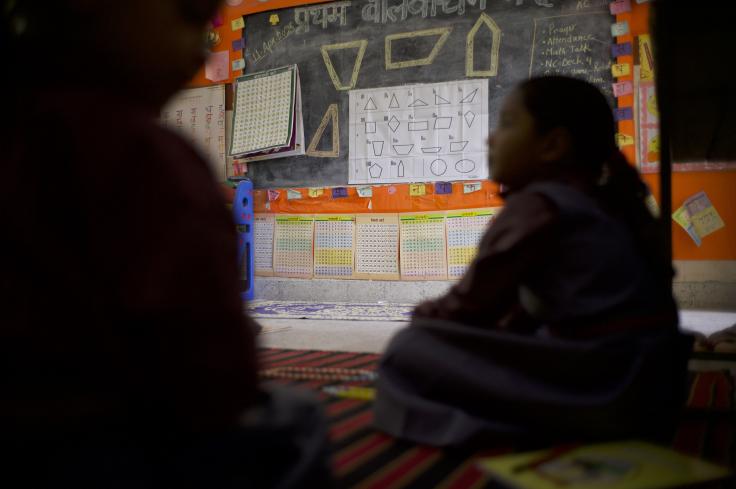
What’s in the toolkit?
The toolkit is designed for a range of audiences, including:
- Explorers: Organizations and individuals seeking new programs to implement and want to learn if Every Child Counts aligns with their goals and context. This includes senior government officials, NGOs aiming to expand their programming, donors etc.
- Program owners: Strategic partners who will lead the program (raising funds, building government partnerships, and managing implementation) in their geographies. This includes NGOs, governments, and think tanks/ consultants working with both.
- Program implementers: Implementing organizations responsible for delivering Every Child Counts in collaboration with strategic partners. This includes operational, as well as monitoring and evaluation staff from governments and NGOs.
Inside the toolkit, you’ll find:
- The theory of change and evidence behind why Every Child Counts works
- A deep dive into the four math games and how they’re played
- Guidance on teacher roles and classroom materials
- Criteria to assess whether your context is a good fit for the program, and insights into core elements that drive successful scale-up
- Insights from J-PAL South Asia’s experience scaling the curriculum through governments and NGOs
- Insights into major cost areas and how to embed them into government systems
We extend our sincere thanks to the What Works Hub for Global Education for supporting the creation of this guide. We would also like to thank our funding partners: J-PAL's Innovation in Government Initiative, USAID Development Innovation Ventures, and ASPIRE at J-PAL South Asia, for their sustained support in scaling Every Child Counts.
Interested in learning more? Contact Vatsala Sharma, Policy Manager, J-PAL South Asia.
Related Content

The making of an NGO consortium to scale up “Every Child Counts” in India

Deworming to increase school attendance
